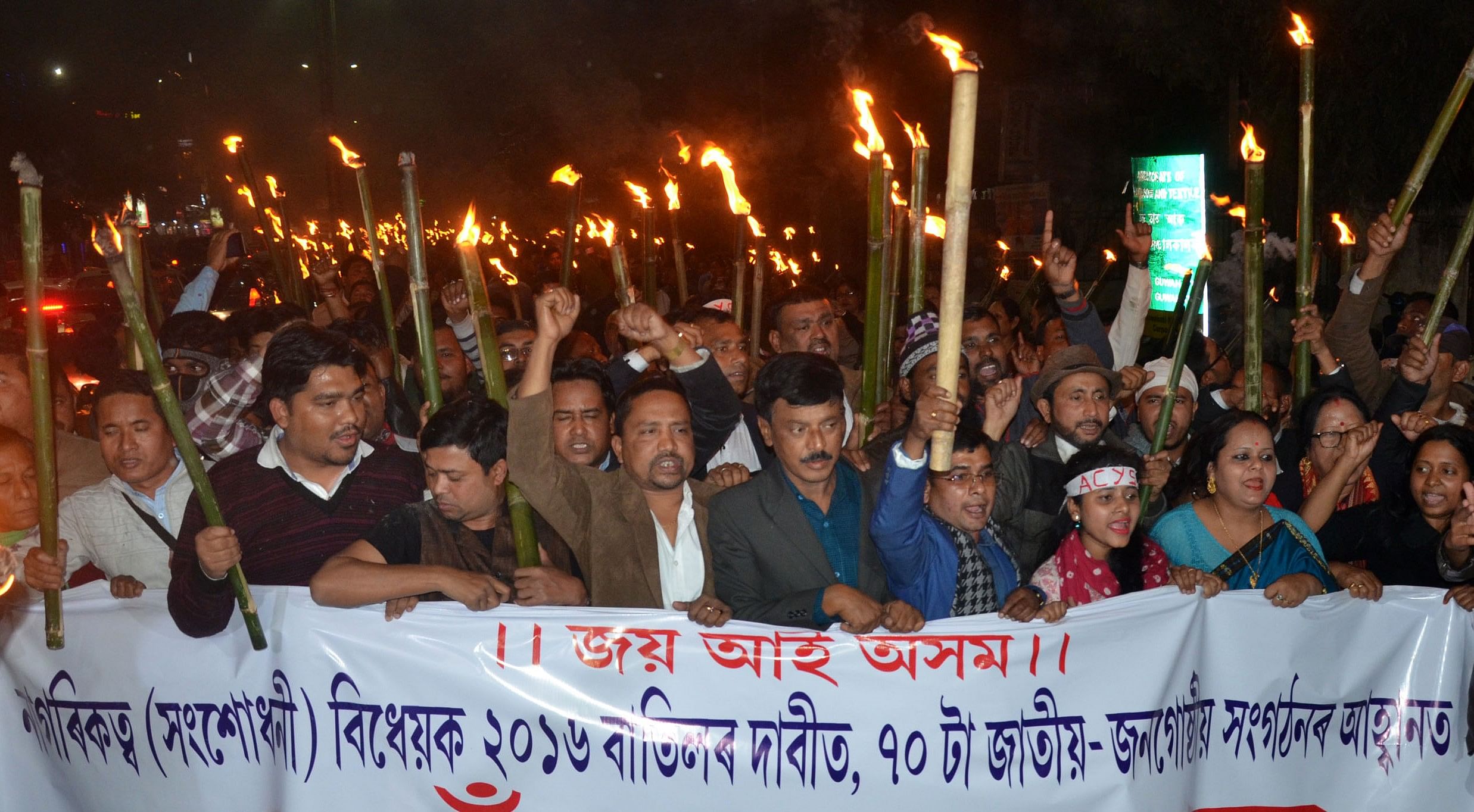
The Citizenship (Amendment) Bill, 2016, is not the only constitutional amendment that is causing angst in Assam. The Narendra Modi cabinet on January 9 introduced in the Rajya Sabha another bill that seeks to make Assam a tribal-dominated state, like Chhattisgarh. This could set the stage for another wave of protests like the one being witnessed over the Citizenship Bill.
While the Citizenship Bill has triggered fears of the state’s indigenous people losing identity against the ‘foreigners’ to be given citizenship, the Constitution (Scheduled Tribes) Order Amendment Bill, 2019, is causing confusion and panic among the existing 29 Scheduled Tribe (ST) communities and the six more that will get the ST status once the bill is passed. In one swoop, the state’s tribal population will rise from 15% of the population to 65%. This has triggered fear among the state’s general category people, too.
“This is going to be disastrous for the original tribal populations as they are intellectually and economically much backward compared to the six communities now sought to be given the ST status. The six communities comprise more than 50% of the state’s population. If they are declared ST, the original tribals will not be able to compete with them for jobs or admissions in educational institutions,” said Aditya Khakhlari, general secretary of the All Assam Tribal Sangha (AATS).
The bill seeks to fulfil the long-pending demand for ST status to six OBC communities — the Ahom, Moran, Mottock, Chutia, Koch Rajbonghsi and the tea garden tribes. They have been demanding ST status for years, saying they lag behind in social and economic strata.
“How can the Ahoms, who ruled Assam for 600 years till 1826, be called a backward community? Chutias and Koch Rajbongshis also ruled eastern and western Assam, respectively. We will never accept this bill and will continue to fight on the streets and in the Supreme Court, too. We are against giving ST status to any more communities,” Khakhlari, who also heads the Co-ordination Committee of the Tribal Organisations in Assam. The committee has already observed Assam bandh twice and staged protests against the bill since it was tabled in the Rajya Sabha.
Reservation concerns
There are two kinds of STs in Assam—ST (Hills) and ST (Plains), who enjoy 10% reservation in government jobs and educational institutions, but the same is 7.5% at the national level for all STs in the country. Following protests by the existing STs, the Assam government has formed a Group of Ministers (GoM) and assured people that the six communities would be categorised as ST (General) and would not affect the reservations already enjoyed by the existing ST communities. But Khaklhari refuses to believe the government’s assurance. “There is no such categorisation of the STs in the Constitution and these are arrangements at the state level. So, such categories will not be applicable at the national level and will be quashed once it is challenged in a court. Such categorisation will not be applicable for reservation in jobs in the UPSC or any other central government department,” he said.
The All Adivasi Students’ Association of Assam (AAASA), which has been demanding ST status to all 96 sub-tribes of Adivasis in the state dubbed the move an ‘election lollipop’ of the Modi government ahead of Lok Sabha elections.
“The government is saying that the GoM will submit its recommendation about the reservations by February 15. But then we will be too close to elections and the government will delay it citing code of conduct. If the government is serious, it should have the bill passed during the budget session from January 31,” AAASA general secretary Deben Orang said. “We will continue to protest against such political exploitation of the 80 lakh Adivasis ahead of every election.” The Adivasis were brought by the British from central Indian states to work in the tea gardens in Assam. They are not classified as STs in Assam.
Seats in Assembly
There are 15 of 126 assembly seats and two of seven Lok Sabha seats reserved for STs at present. But the state government says the passage of the bill will reserve at least 80 seats for them, making the state’s indigenous people politically stronger. “If we can pass the bill and implement Clause VI of Assam Accord, Assam will be a protected fort for the indigenous people,” chairman of the GoM and cabinet minister Himanta Biswa Sarma said recently. But Khakhlari said the original tribal population will lose as their numbers will be fewer and hence their candidates would get fewer tickets to contest elections.
General worry
General Category people are even more worried as they fear that they would lose out in all respects -- jobs, education or in elected bodies -- if the reservation for STs goes up. “No one is talking about the political rights of the General Category people, like the nearly 20% Hindu Bengalis. The provision of reservation in the Constitution was made to protect the interests of the weaker sections but the present move is against this very concept,” said Raju Kumar Narzary, executive director of the North East Research and Social Work Networking, an NGO based in Kokrajhar, a district under the Bodoland Territorial Council, set up under the Sixth Schedule of the Constitution.